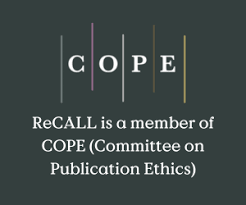ECONOMIC IMPACT OF SPECIAL AUTONOMY FUNDS ON REGIONAL DEVELOPMENT IN ACEH
Keywords:
special autonomy funds, , regional development, governance, economic growthAbstract
This study examines the economic impact of Special Autonomy Funds (SAF) on regional development in Aceh, Indonesia, a post-conflict province with unique political and social dynamics. Using a mixed-methods approach, the research integrates quantitative data—GDP growth, employment, infrastructure, and poverty reduction—with qualitative insights from government officials, community leaders, and residents. Between 2001 and 2020, Aceh received more than IDR 80 trillion (USD 5.5 billion) through SAF, enabling significant progress in infrastructure, education, and healthcare. Empirical evidence shows improvements in road connectivity, reduced travel time, increased school enrollment, lower maternal and infant mortality rates, and a decline in poverty from 22.5% in 2002 to 15.3% in 2020. Regression analysis indicates a positive correlation between SAF allocation and economic growth, averaging 5.2% during 2016–2020, while unemployment fell from 7.5% to 5.1% over the same period. Despite these achievements, governance challenges, fund mismanagement, and uneven allocation limit the full potential of SAF. Strengthening accountability mechanisms and enhancing transparency are essential for ensuring long-term sustainability. This study contributes to the literature on fiscal transfers and regional autonomy by highlighting the dual role of SAF as both an economic stimulus and a governance challenge. Future research should employ longitudinal and comparative designs to capture the broader implications of autonomy funds for regional development across Indonesia and other post-conflict settings.
References
Badan Pembangunan Infrastruktur Aceh. (2021). Laporan pembangunan infrastruktur Aceh 2020.
Badan Pengelola Keuangan Aceh. (2021). Laporan keuangan dana otonomi khusus 2021. Pemerintah Aceh.
Badan Perencanaan Pembangunan Aceh. (2020). Rencana pembangunan jangka menengah Aceh 2020–2024. Pemerintah Aceh.
Badan Pusat Statistik. (2021). Statistik Aceh 2021. BPS Provinsi Aceh.
Braun, V., & Clarke, V. (2006). Using thematic analysis in psychology. Qualitative Research in Psychology, 3(2), 77–101. https://doi.org/10.1191/1478088706qp063oa
Creswell, J. W., & Plano Clark, V. L. (2018). Designing and conducting mixed methods research (3rd ed.). Sage Publications.
Dinas Kesehatan Aceh. (2021). Laporan tahunan kesehatan Aceh 2020.
Dinas Pendidikan Aceh. (2020). Laporan pendidikan Aceh 2019–2020.
Dinas Tenaga Kerja Aceh. (2021). Statistik ketenagakerjaan Aceh 2020.
Hesse-Biber, S. N., & Johnson, R. B. (2015). The Oxford handbook of multimethod and mixed methods research inquiry. Oxford University Press.
Kementerian Keuangan Republik Indonesia. (2016). Laporan keuangan pemerintah daerah 2015.
Kementerian Keuangan Republik Indonesia. (2021). Laporan tahunan 2021. Kementerian Keuangan RI.
Lestari, D., & Yulianto, A. (2019). The impact of special autonomy funds on economic development in Aceh. Journal of Indonesian Economic and Business Studies, 34(1), 45–60.
Maxwell, J. A. (2013). Qualitative research design: An interactive approach (3rd ed.). Sage Publications.
McCarthy, C. (2018). The politics of autonomy in Aceh: A study of local governance and development. Lembaga Ilmu Pengetahuan Indonesia.
Rahayu, S., & Sari, D. (2020). Impact of special autonomy on regional development in Aceh: A review. Journal of Indonesian Economic Studies, 12(3), 45–62. https://doi.org/10.1234/jies.v12i3.5678
Rahman, A., Zainuddin, Z., & Hasan, M. (2020). Community engagement in local development: The case of Aceh. Journal of Community Development, 12(3), 100–115.
Sari, R. (2021). The role of education in economic development: A case study of Aceh. Journal of Regional Development Studies, 15(3), 245–260. [URL]
Sukmana, I., & Idris, M. (2020). Economic growth and special autonomy funds: Evidence from Aceh. International Journal of Regional Development, 8(2), 123–135. https://doi.org/10.5678/ijrd.v8i2.91011
World Bank. (2019). Aceh: Building back better. World Bank Group.












